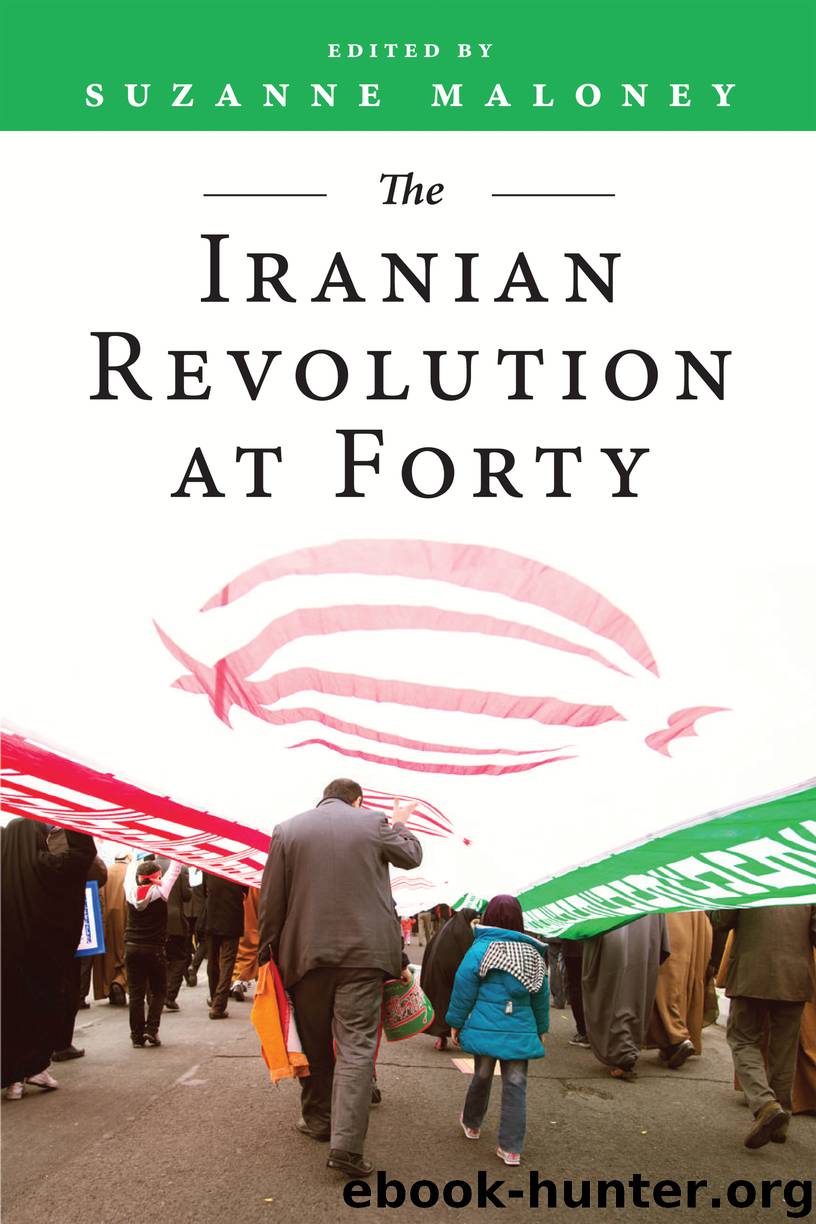The Iranian Revolution at Forty by Suzanne Maloney

Author:Suzanne Maloney
Language: eng
Format: epub
Publisher: Brookings Institution Press
History Lessons
From the perspective of history, there is some irony in this shift. Iran’s refusal to defend the legality of its actions during the hostage crisis reinforced the extent to which it was willing to spite the international community, and set it on the road to becoming a global pariah. Now that Iran is seeking to repair its international status, it has turned to the ICJ to try and paint the United States as an “outlaw regime” whose unilateral campaign against Iran similarly spits in the face of international law—a narrative that the Trump administration’s resistance to ICJ scrutiny only serves to reinforce. The parallels should not be overstated: Iran’s current claims stand on far weaker legal grounds than the U.S. hostage claims, and U.S. efforts to limit the ICJ’s jurisdiction are entirely consistent with international law. Nonetheless, there may be lessons to be drawn from the two states’ prior experiences.
True pariah status is a long way off for the United States. But since its controversial 2018 withdrawal from the JCPOA, the United States has stood largely alone when it comes to Iran. The UN Security Council removed multilateral sanctions on Iran when it endorsed the JCPOA in 201536 and has declined to reinstate them, in large part because Iran is widely believed to have remained in compliance with the JCPOA’s terms through the summer of 2019.37 European allies who wish to preserve the JCPOA have gone so far as to establish a special-purpose vehicle to allow European companies to trade with Iran without triggering reimposed U.S. economic sanctions.38 Yet, this has not stopped the Trump administration from pursuing its unilateral “pressure campaign”—one officially aimed at ending the various objectionable activities Iran engages in that were not covered by the JCPOA, but that the Trump administration often discusses in terms that sound like regime change.39
Whether this effort succeeds will ultimately depend on the extent to which the United States can either coerce or persuade the international community into cooperating. Thus far the Trump administration has focused on the former, but there may be limits on how far even the United States can leverage its global economic and political power. Pursuing the latter, however, almost certainly would require demonstrating how U.S. policies are consistent with the international legal regime that helps protect the interests of various members of the international community—and adjusting those policies accordingly where they do not. This does not necessarily require submitting to ICJ jurisdiction, but it does require serious consideration of the international community’s concerns. Revolutionary Iran’s failure to take this into account has cost it more than four decades of international isolation. And while the United States is unlikely to face as severe a consequence, the Trump administration’s unwillingness to learn from Iran’s example may prove no less self-defeating.
Download
This site does not store any files on its server. We only index and link to content provided by other sites. Please contact the content providers to delete copyright contents if any and email us, we'll remove relevant links or contents immediately.
| Arms Control | Diplomacy |
| Security | Trades & Tariffs |
| Treaties | African |
| Asian | Australian & Oceanian |
| Canadian | Caribbean & Latin American |
| European | Middle Eastern |
| Russian & Former Soviet Union |
The Secret History by Donna Tartt(19028)
The Social Justice Warrior Handbook by Lisa De Pasquale(12182)
Thirteen Reasons Why by Jay Asher(8883)
This Is How You Lose Her by Junot Diaz(6872)
Weapons of Math Destruction by Cathy O'Neil(6261)
Zero to One by Peter Thiel(5782)
Beartown by Fredrik Backman(5734)
The Myth of the Strong Leader by Archie Brown(5491)
The Fire Next Time by James Baldwin(5423)
How Democracies Die by Steven Levitsky & Daniel Ziblatt(5211)
Promise Me, Dad by Joe Biden(5139)
Stone's Rules by Roger Stone(5078)
A Higher Loyalty: Truth, Lies, and Leadership by James Comey(4946)
100 Deadly Skills by Clint Emerson(4911)
Rise and Kill First by Ronen Bergman(4775)
Secrecy World by Jake Bernstein(4738)
The David Icke Guide to the Global Conspiracy (and how to end it) by David Icke(4696)
The Farm by Tom Rob Smith(4500)
The Doomsday Machine by Daniel Ellsberg(4481)
